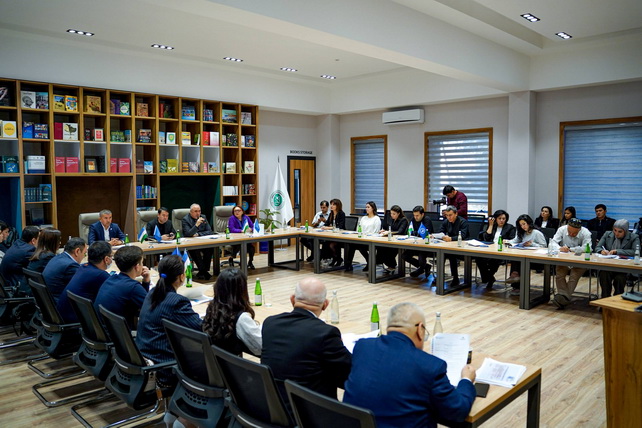
Uzbekistan Begins Development of First Gender Strategy in the Environmental Sector with FAO Support
Uzbekistan Begins Development of First Gender Strategy in the Environmental Sector with FAO Support
Tashkent, Uzbekistan (UzDaily.com) — The Ministry of Ecology, Environmental Protection, and Climate Change of the Republic of Uzbekistan, with technical support from the Food and Agriculture Organization of the United Nations (FAO), has officially commenced the development of its first Gender Strategy, aimed at systematically integrating gender equality principles into the activities of the environmental sector.
This new strategic document represents an important step toward strengthening inclusivity, expanding women’s rights and opportunities, and ensuring their equal participation in the management of natural resources and climate policy.
The initiative is being implemented in line with Uzbekistan’s national priorities and the country’s international commitments, including Sustainable Development Goal (SDG) 5 — achieving gender equality — and SDG 13, which calls for urgent action to combat climate change.
Uzbekistan already possesses significant institutional experience in this area. Previously, the Ministry of Agriculture approved its own Gender Strategy with technical support from FAO. Additionally, a FAO-supported program in the forestry sector focuses on enhancing the role of rural women in sustainable forest management. These prior experiences will serve as a foundation for the development of the Ministry of Ecology’s Gender Strategy.
The first working group meeting was held at the Central Asian University for Environmental and Climate Studies (“Green University”). Participants included ministry leadership, representatives of relevant divisions, FAO experts — both country-based and regional — the global FOLUR project team, and international specialists.
During the discussions, the framework of the forthcoming strategy, priority areas, and expected results were examined in detail. Tasks, development timelines, and responsible parties were agreed upon, and it was decided that all stages of the work would strictly align with Uzbekistan’s national policy directives and international obligations, including the Sustainable Development Goals.
The Gender Strategy under development will define specific objectives, tasks, and measurable indicators for the next five years. Once approved, the document will serve as the foundation for: creating equal conditions and opportunities for women and men across all activities of the Ministry; expanding women’s participation in decision-making processes within the environmental sector; strengthening gender equality principles in natural resource management; and enhancing the effectiveness of environmental policy and resilience to climate change.
The strategy will be developed using gender integration approaches applied in FAO’s global FOLUR program, which is being implemented in 27 countries worldwide.
Key components of the document will include gender-sensitive planning and monitoring, collection of sex-disaggregated data, engagement of a wide range of stakeholders, and development of institutional capacity.
The development of the Ministry of Ecology’s first Gender Strategy represents a significant step toward building a fair, inclusive, and sustainable environmental management system, ensuring that “no one is left behind.”